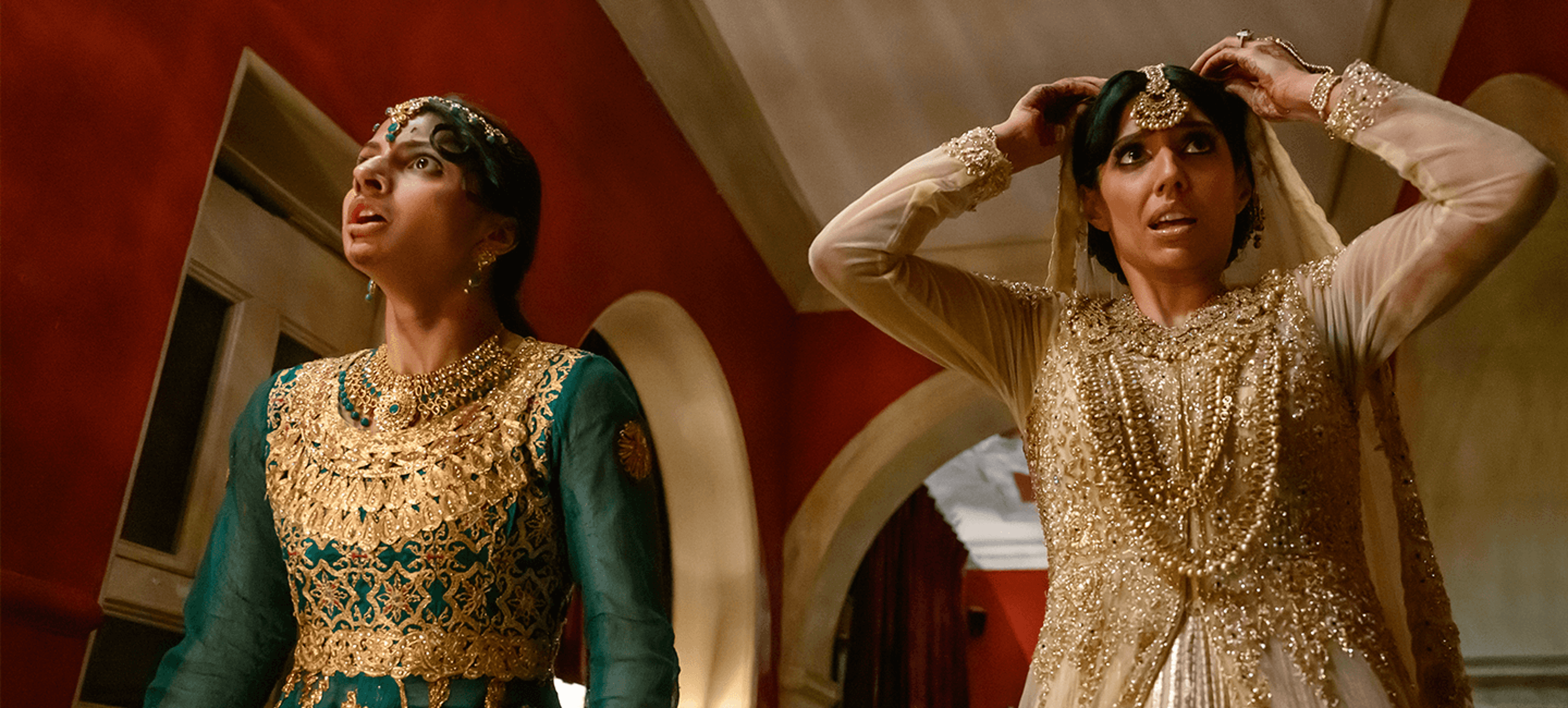In Nida Manzoor’s Polite Society, Ria (Priya Kansara) and Lena Khan (Ritu Arya) are teenage sisters in London getting ready to take on the world. While Ria dreams of becoming a stuntwoman, Lena has set her sights on being an artist, that is until Salim (Akshay Khanna) and his imperious mother, Raheela (Nimra Bucha), step in to plan a marriage for Lena. In a colorful adventure that is part comic book, part comedy of manners, Ria suits up to fight and get her sister back.
To add just the right spice to the film’s wardrobes, Manzoor reached out to costume designer PC Williams, who had collaborated with the writer-director on her hit TV series We Are Lady Parts. Williams’ work on that show won Best Costume Design at the 2022 BAFTA TV Awards. In The Guardian, Kansara called out Williams as “a complete visionary” for crafting costumes that “enhanced the visual effects of the fight scenes.” In addition, Williams’ costumes reflected contemporary London styles in a way that added to the film’s “controlled chaos that blends the color and splendor of Bollywood with sly British satire reminiscent of early Edgar Wright,” according to Eye For Film.
We spoke to Williams about bringing her personal story into her style, dressing a wedding, and creating a different kind of hero for teenage girls.
Get tickets for Polite Society now!
How Polite Society's Jewel-Toned Dresses and Modern Day Streetwear Fit Together
How did you get involved designing costumes for Polite Society?
I worked with Nida previously on her show We Are Lady Parts. When this project came up, we were like, "Should we continue our collaboration? Why, yes, we should." I asked her, “What are we making?” And Nida told me, "A stunt woman goes to break up a wedding and there will be lots of fights and big dresses." That is how it happened.
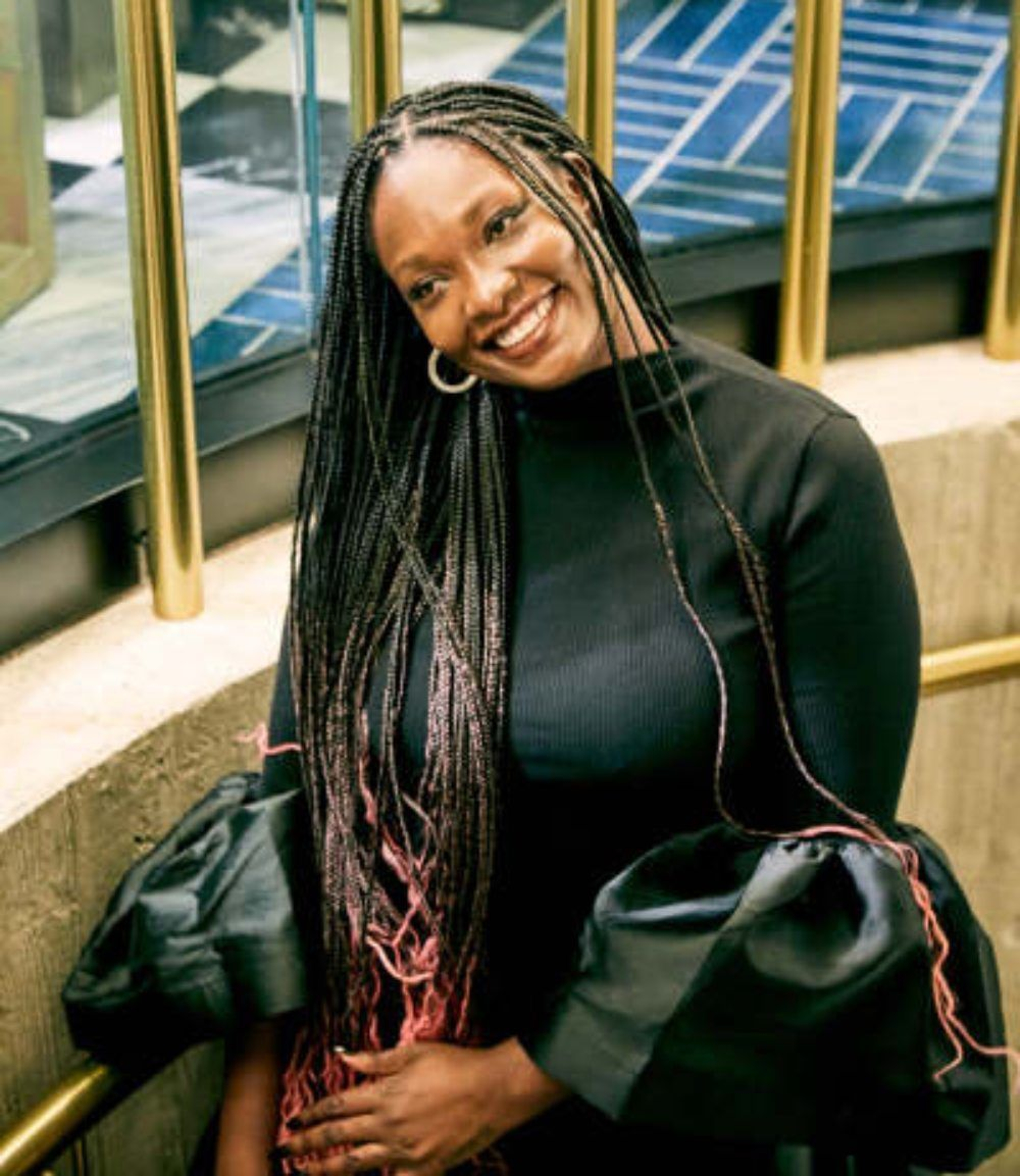
Costume designer PC Williams
When you first read the script, did you have thoughts about costuming?
My first thought was that I wished I'd been able to see this movie when I was 16 or 17. When I was that age, the films about teenage girls were things like She's All That and 10 Things I Hate About You. The girls were always sexy, but not really teenagers. I wanted to make a film about teenagers being teenagers. It’s really important to have imagery out there with young women being comfortable in themselves without having to be a TikTok or Instagram version of themselves. They can experiment with being goth, tom-boyish, twee, or vintage and still be fun and fresh.
After conversations with Nida and Simon Walker, our production designer, I had a better idea of how I wanted to build out these characters.
So many different cultures intersect in the film? How did you incorporate all of them in the costuming?
I come from all those spaces. I'm a second-generation migrant who grew up in London. My whole working life, whether in film or music, has been involved in representing a present future version of London. This film is an incredible opportunity to showcase that.
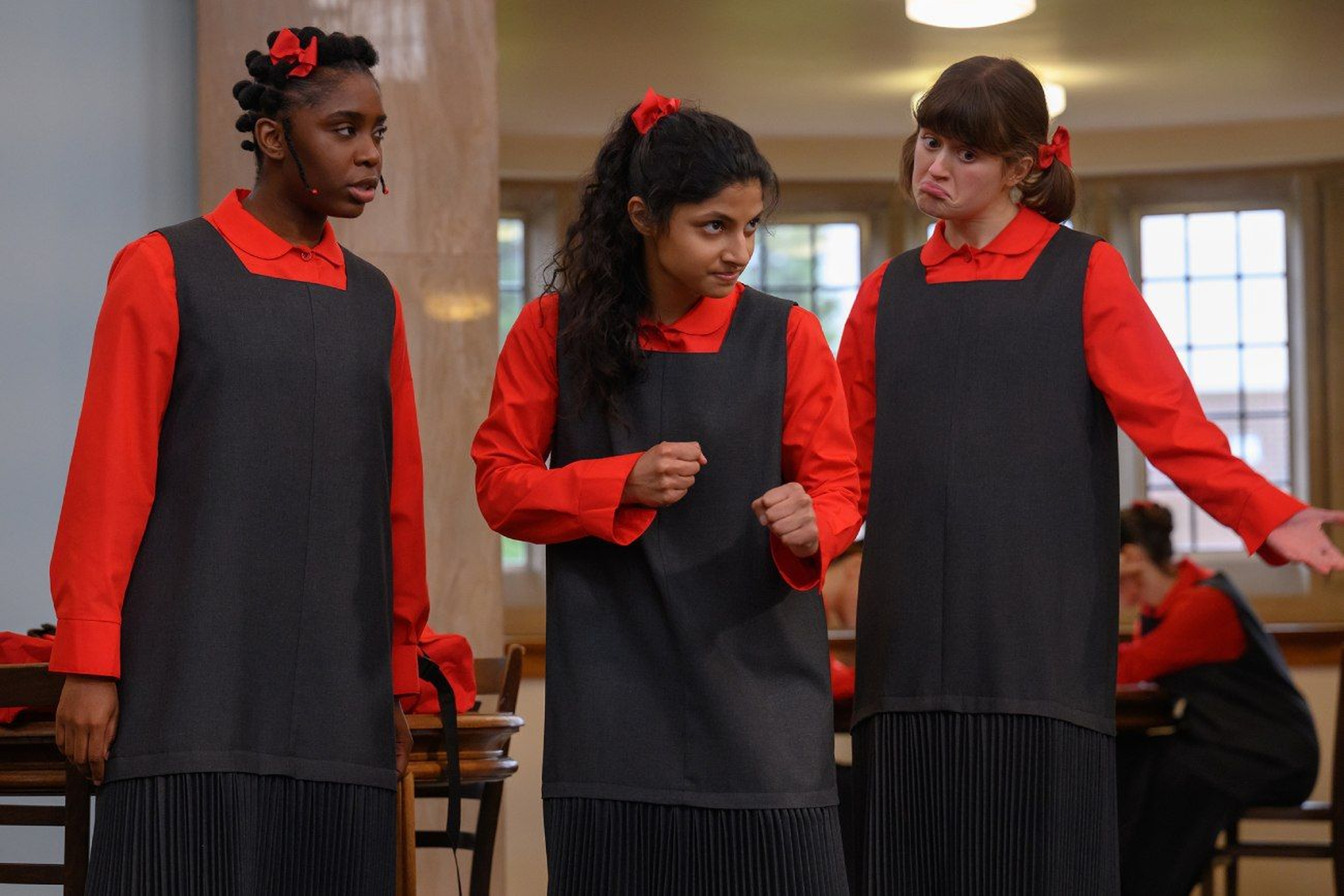
Clara (Seraphina Beh), Ria Khan (Priya Kansara), and Alba (Ella Bruccoleri) in Polite Society
What was your idea for the look of the school uniforms?
I was thinking about two things when I was designing the school uniforms. One was how to make them unsexy. I wanted them to be the furthest thing from sexy that they could be. I wanted the design to say, "This is a school uniform for kids going to school." Two, I wanted them to allow the protagonist to stand out. While the uniforms had to have a homogeneous look, I also wanted them to provide us with the opportunity to individualize them. We were able to do that with Ria and her jacket and Clara (Seraphina Beh) with her strands of beads. In designing them, I looked at things like The Handmaid's Tale for how to make costumes that have a strong design but still allow people to be individuals.
You use such a dynamic color palette in the costumes.
We wanted to do something we tried out in We Are Lady Parts by creating heightened moments through the costume and production design. How do you base something in reality and then, in a split second, make it so you are in movieland? In design, I love color. It helps the world know that it's mine. Both Simon and I are drawn to color and graphics. So, where I wanted to go big in the costume design, Simon would pull back. And when Simon wanted to be big in the production design, I pulled back. There were moments when we both wanted the design to feel big, like in some of the fight scenes.
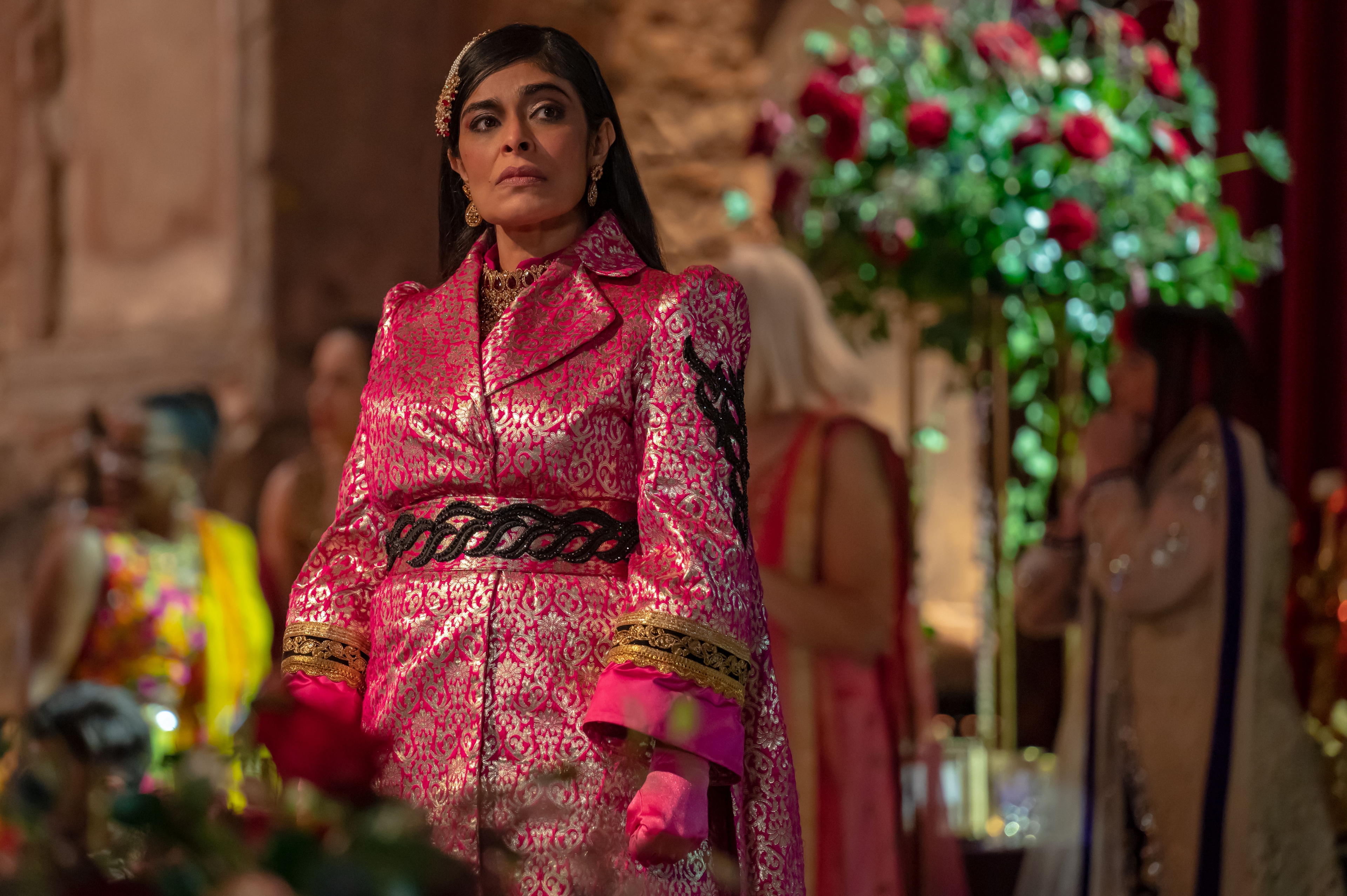
Raheela (Nimra Bucha) in Polite Society
How much research did you do on South Asian weddings to get the details right?
We hired a wedding planner as an advisor to guide us through the traditions and rituals. She helped us navigate what people should wear, and, more importantly, how what you wore would tell others at the wedding who you are. I married that knowledge with my understanding of Nigerian weddings. In a Nigerian wedding, for example, everyone from the bride’s side wears one color, and everyone from the groom's side wears a different color. I used that ritual as a way to separate the families by color. Ria’s family is all in blues and greens, except for Lena who is in her golden moment. Salim’s family is all in pinks, reds, oranges, or yellows. The thing that connects them all is that they are all jewel tones. Before I had an idea of what I was going to put anyone in, I knew that it had to be a jewel-tone wedding. If I started from that space of opulence, then I could bring in humor and tradition.
We also got a lot of work done within the Southeast Asian community in London. A lot of the tailors we used had stores in places like Green Street or Southall. They were incredible to collaborate with and were an amazing resource to make the wedding be as authentic as it could be.
Can you tell us what the costumes of specific characters tell us about them? Let’s start with Ria.
Ria is a tomboy. She may not know it all, but she's working it out. She is trying to carve out a space for her understated London cool. She wears things like her wide-leg pants that sit just above her trainers and an aviator jacket, which she sports with her gold helmet while riding her bike. It makes me think of Top Gun with Ria coming out of a plane. You know at first sight that this person is badass.
How about Lena?
When I was thinking about Lena's costumes, I was thinking about Parisian artists. She's also trying to figure things out, but she’s a bit more self-aware. She is going through a dark time in her life. Her transformation from an artist into a sort of Stepford Wife character was a slow and steady transition of costumes. I wanted her appearance at the wedding to be the epitome of that transformation.
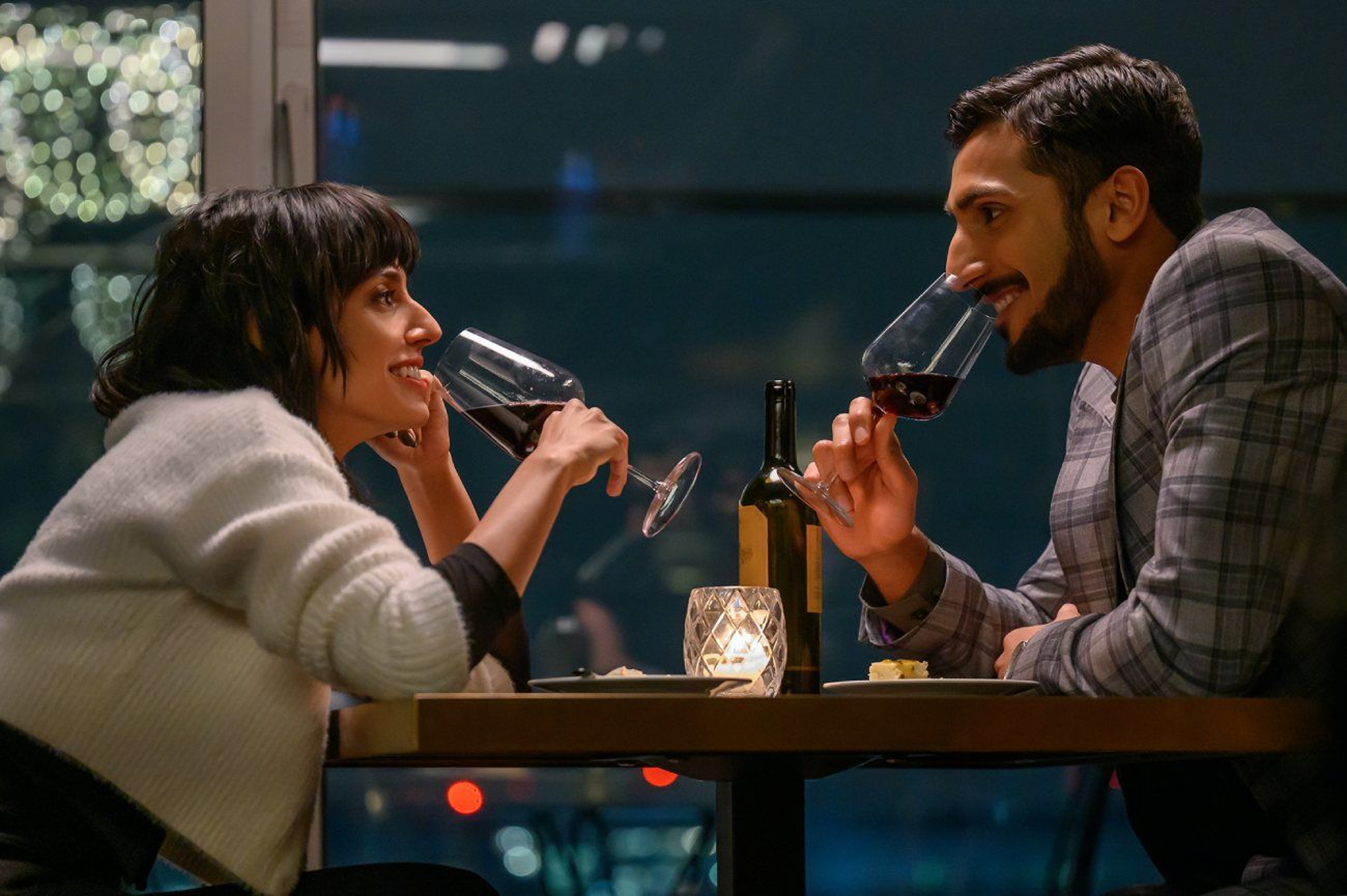
Lena (Ritu Arya) and Salim (Akshay Khanna) in Polite Society
And Raheela?
I wanted her to look like money, to look rich, classy, and fashionable. Sartorially, I wanted her to be a woman of stature. I was very specific about the monotone quality of her wardrobe with her either being in a red three-piece or gold number. If we added anything more, it would be a single-color accent. The contrast in her costumes was all in the fabrics she wore, which would play softness against hardness.
And finally, Salim?
Salim was meant to be that young businessman who is all about his suits which he then wears as separates. His dress is not aligned in any way with the Khan family. Their dad's version of being smart is just wearing a shirt and a vest. Salim is always in a blazer, and always smartly dressed.
What would you like audiences to take away from the film?
I would love audiences to come out of the theater with a smile on their faces. I would especially like girls to come out of the theater feeling like they could do anything. Because I have a young niece, I am so much more aware that there is a singular way of speaking to young girls. I want to give them an alternative that tells them that they can enjoy being 16 and not feel like they have to be 23 and know it all. They can have fun.
The official trailer for Polite Society
This interview has been edited and condensed for clarity.
